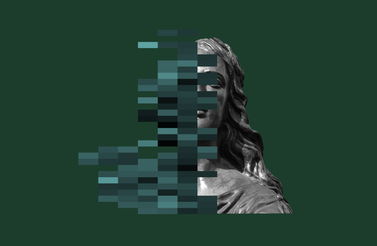We live in a world of influence, whether by elected officials, advertisers, or your friends and family. But something different is going on with technology-facilitated manipulation of our minds. Consider the immersive influence of virtual reality, the dark patterns of website design nudging consumer behaviour, the psychological influence of memes and videos, or the impact of recommender systems on youth mental health. These examples scratch the surface of the various ways technology is being used to hack our minds, and they are slipping through the cracks of the law.
Canada already has laws that apply to some parts of this problem. Competition law regulates deceptive marketing. Privacy law addresses commercial use of personal information. But these laws skirt the edges of the problem. The core mischief is interference with our freedom to think, which is a Charter right. The hurdle is that it requires legal gymnastics for the right to have any practical effect. Government action is needed to ensure that the legal right to protection of our inner minds is meaningful.
Section 2(b) of the Charter protects freedom of thought, belief and opinion. These are the lesser-known cousins of freedom of expression. Rather than protecting what we express, these freedoms protect the internal space in our minds from invasion and manipulation so that we can develop ideas and opinions free from interference. Similar rights exist under international human rights law, and the Canadian government is advised to turn attention to those debates. Recent works by Susie Alegre and Evelyn Aswad have sounded the alarm about the risks posed by technology to freedom of thought and opinion. In Canada, freedom of thought, belief and opinion have rarely been litigated or discussed, and not at all in the context of technology. They are, as Dwight G. Newman describes them, “forgotten freedoms.”
Even if the substance of the relevant Charter rights is fleshed out, it will not solve the problem at hand. The present threat to our rights does not primarily come from government, but rather from corporate actors. Therein lies the rub. Private parties do not owe each other constitutional duties. TikTok, for example, does not have a legal duty to users to protect their freedom of thought, belief and opinion, even if its recommender system implicates these rights by pushing videos on self-harm, eating disorders and violent extremism. This is because the Charter only directly applies to governmental action.
The approach under Canadian law likely does not comply with our obligations under international human rights law.
The Charter is still relevant to private actors. Charter values shape the development of various laws that apply to private actors, but it’s not a free-for-all. The circumstances where Charter values can be considered by a court are relatively narrow, making these rights of little practical use — at least directly — for the types of threats discussed here. As a result, in order to protect our freedom of thought and opinion from corporate invasions, government action is required. But is the government legally required to act?
Generally, these types of rights are treated as negative liberties. As long as the government stays out of the way, it is presumed that our freedoms are protected. It is not a hard-and-fast rule, and there are many circumstances where a government must positively act. However, there is no legal duty to pass legislation that does not exist. As the Supreme Court of Canada stated, “one must always guard against reviewing legislative silence.” This means that while the government should enact legislation to regulate the impact of technology-facilitated mind manipulation, it is not legally required to do so. We are thus at the mercy of government to choose to do something.
The approach under Canadian law likely does not comply with our obligations under international human rights law. Canada acceded to the International Covenant on Civil and Political Rights (ICCPR) in 1976. As part of that process, Canada is required to make the necessary changes to domestic law to ensure that it is compliant with the ICCPR. The ICCPR requires that states take positive steps to protect rights even between private parties. In fact, states debated whether the right to freedom of expression and opinion should be limited to governmental action, and the language was intentionally left broad to require that governments protect individuals from corporate interferences with rights. As a result, freedom to think and opine is a corporate responsibility even if Canadian domestic law does not frame it as such. The government should act to ensure that the right is protected as envisioned under international human rights.
Where do we go from here?
Government action is needed to breathe life into the rights of thought, belief and opinion; to ensure that our minds are protected from the unchecked influence of technology; and to make these rights meaningful as between private parties.
The Government of Canada is in the midst of significant law reform to address the impact of emerging technologies across the gamut of online safety, privacy, artificial intelligence and competition law. At this time, these efforts fall short of protecting the relevant Charter rights from corporate interferences, even when considered collectively. As a first step, the government should examine the organizational and technological activities that drive manipulation of our minds and implicate freedom of thought and opinion. Then it should undertake a review of current and proposed laws to identify gaps in protection to then effect any necessary changes.
Freedom of thought, belief and opinion are Charter rights, and they have largely gone unnoticed. They deserve fulsome protection, even from corporate actors.
This article first appeared in The Hill Times.




